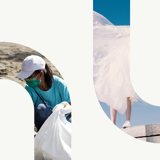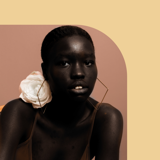New textile project will increase circularity for industrial textiles
How do we ensure that the circular textile industry of the future is also economically sustainable? The DECOUPLE project will pave the way by using product data to extend the lifespan of textiles in the laundry industry.
Once a rented work uniform has been used, what is the most sustainable next step? Should it be washed and rented out again? Should it be repaired? Or should it be recycled into new textile materials? The options are many, and without accurate data, it can be difficult to make the right decision to ensure the uniform has the longest possible lifespan. A key ambition of a new project called DECOUPLE is therefore to help companies make more responsible choices based on their own product data.
- The textile industry is facing a green transition and must make complex choices that support both sustainability and business. At DECOUPLE, we want to help them make the best data-driven, circular choices. At the same time, we work holistically with solutions that extend the lifetime of textiles and remove barriers to closed-loop recycling, says Project Manager Julie Stokkebro Schmøkel from Danish Technological Institute (DTI).
Data will help make more environmentally friendly decisions
One of the participants in the project is Elis, a textile company that rents and maintains textiles for private and public workplaces. The company has detailed information on 6.4 million textile products. The data will help navigate the complex handling of products to make decisions about material selection, repair and recycling that maximise economic and environmental value.
- The project is super exciting because we already know a lot about our products and their life cycle in the washing process. This data will be analysed so that it can guide us even better and ensure the longest possible lifespan for our products at the customer's site. It will also support us in our development of products with recycled materials together with the other partners in the project, says Christina Saxkjær from Elis.
The goal is for Elis' data-driven decision-making to inspire other companies, also outside the textile industry, to use their wealth of product data to increase sustainability.
Focus on closed-loop recycling
The overall focus of DECOUPLE is to maximise the economic and environmental value of textiles. The partners are therefore also working on technical and design methods that lower the barriers to reuse and recycling. Among other things, new industrial products made from recycled fibres are being developed and analysed.
- As a textile company, we face similar dilemmas as we all do at the supermarket. Should you choose the organic cucumber imported from abroad or the domestic conventional cucumber? Our company sells textile products that are designed for durability. At the same time, we want to use recycled fibres, but can these things go hand in hand so that we don't compromise on quality and longevity? We look forward to learning more about this through the project," says Dorthe Hestbjerg Jensen from ID® Identity.
Participating Partners
DECOUPLE is a collaboration between Elis, ID® Identity, Design School Kolding, NewRetex, University of Southern Denmark and Danish Technological Institute.
Project Leader

Julie Stokkebro Schmøkel
Mail:jssc@teknologisk.dk
Other Textile Projects







